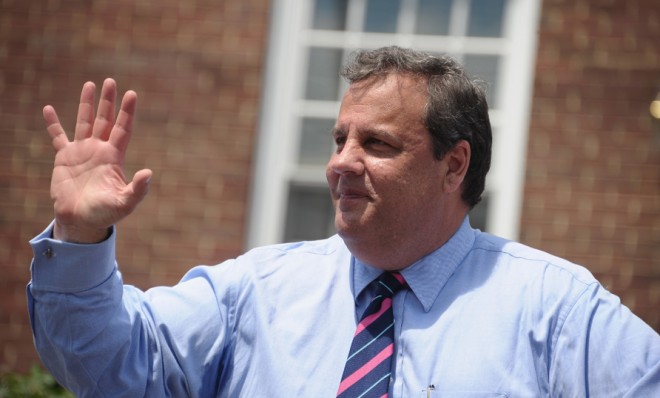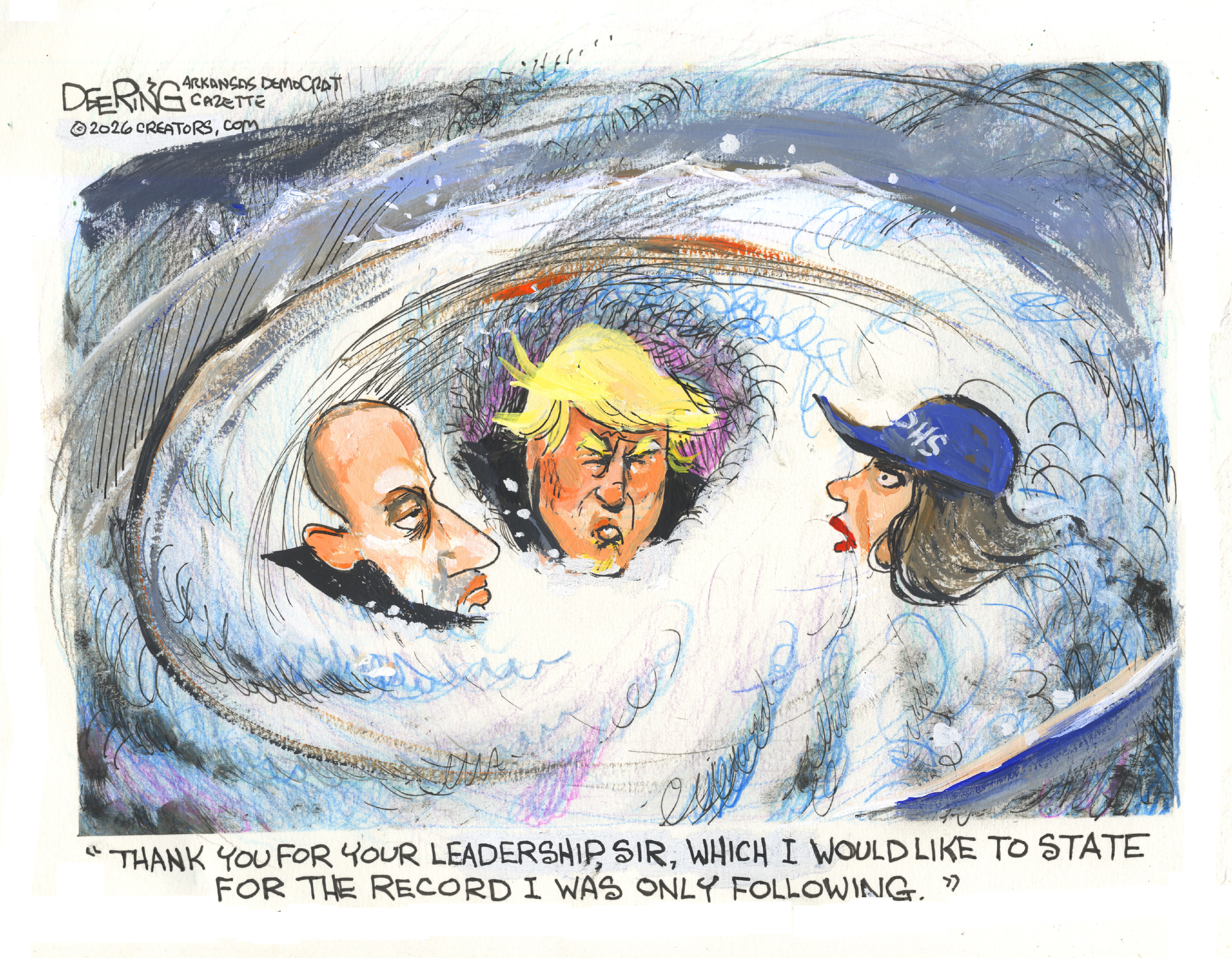It's never too early for 2016 candidates to start spinning their narratives
The top contenders boast impressive resumes — but it's how they present these bios that resonates with voters


A free daily email with the biggest news stories of the day – and the best features from TheWeek.com
You are now subscribed
Your newsletter sign-up was successful
Is Ted Cruz a conservative outsider or a Harvard Law grad whose wife is a top Goldman Sachs exec?
Was Chris Christie a scrappy middle-class kid who worshipped Bruce Springsteen or a former lobbyist George W. Bush affectionately called "Big Boy"?
Should we think of Marco Rubio as the son of a bartender or as a "wheeling-and-dealing" Miami politician?
The Week
Escape your echo chamber. Get the facts behind the news, plus analysis from multiple perspectives.

Sign up for The Week's Free Newsletters
From our morning news briefing to a weekly Good News Newsletter, get the best of The Week delivered directly to your inbox.
From our morning news briefing to a weekly Good News Newsletter, get the best of The Week delivered directly to your inbox.
Is Jeb Bush the beneficiary of a political dynasty or a loving father married to a Mexican immigrant?
And that's the challenge for the potential candidates for the 2016 GOP nomination. They'll have to battle to define themselves in the most flattering light (outsider, scrappy, son of a bartender) while downplaying the more negative characterizations (elitist, lobbyist, fortunate son) their opponents will attempt to assign them.
Republican voters should think long and hard about these disparate narratives — the good, the bad, and the ugly — before settling on a candidate. Campaigns matter, but most battles are won before they are fought. If Barack Obama wanted a GOP opponent he could paint as Gordon Gekko, then Mitt Romney was right out of central casting. In hindsight, the 2012 race was probably over before it started, and anyone objectively looking at Romney's background should have realized that.
We tend to vote for people we like or identify with. After all, a lot of these guys share the same basic ideas on a big chunk of the big issues facing our country — the differences are in the policy details, but more importantly, in who they are. And the biographical image we paint of a candidate is usually much more important than any policy proposals or speeches they might deliver.
A free daily email with the biggest news stories of the day – and the best features from TheWeek.com
This may sound like conventional wisdom, but it's certainly not reflected in much of the early reporting I've seen, and primary voters put too little stock in it.
Here's the rub: Biographical narratives aren't nearly as important until someone becomes the nominee. And some of the most devastating vulnerabilities aren't fully exposed in a primary because doing so would require an opponent to hit from the left — which many Republican opponents are loathe to do. (And because Republican primary voters might not be moved by the information anyway.)
Here's the good news for this new crop of Republicans eyeing a 2016 run: They have some incredibly good stories to tell. Cruz and Rubio (both of Cuban heritage) and Bobby Jindal (Indian heritage) can talk about how their parents saw opportunity in the American Dream. This would also have the benefit of making the election "historic" (an important thing when you consider Hillary's election would also be historic) and of undermining negative stereotypes about the GOP being the party of old white men.
This election also presents an opportunity for a GOP candidate to connect with average Americans who didn't attend an Ivy League school. While Jindal (a Rhodes scholar) and Cruz (Princeton and Harvard Law) certainly have impressive academic credentials, Marco Rubio, who attended Tarkio College, University of Florida, and then the University of Miami School of Law, would represent a more standard educational background in America. And Scott Walker, the very successful governor of Wisconsin, didn't even graduate college. Rubio would be the first president since Reagan not to have attended an Ivy League school, and Walker would be the first since Truman not to have graduated college.
There is a ton of talent on the GOP bench. And some great stories to tell, too. The challenge for these Republicans is making sure the stories are told on their terms.
This, by the way, is an argument for running some positive ad spots at the beginning of the general election. Negative ads work, but voters also want to know (and like) the person they're voting for. And that requires telling a good story.
Editor's note: Matt Lewis' wife formerly worked as a consultant for Ted Cruz.
Matt K. Lewis is a contributing editor at TheWeek.com and a senior contributor for The Daily Caller. He has written for outlets including GQ Politics, The Guardian, and Politico, and has been cited or quoted by outlets including New York Magazine, the Washington Post, and The New York Times. Matt co-hosts The DMZ on Bloggingheads.TV, and also hosts his own podcast. In 2011, Business Insider listed him as one of the 50 "Pundits You Need To Pay Attention To Between Now And The Election." And in 2012, the American Conservative Union honored Matt as their CPAC "Blogger of the Year." He currently lives in Alexandria, Va.
-
 6 gorgeous homes in warm climes
6 gorgeous homes in warm climesFeature Featuring a Spanish Revival in Tucson and Richard Neutra-designed modernist home in Los Angeles
-
 Russia’s ‘cyborg’ spy pigeons
Russia’s ‘cyborg’ spy pigeonsUnder the Radar Moscow neurotech company with Kremlin-linked funding claims to implant neural chips in birds’ brains to control their flight, and create ‘bio-drones’
-
 Political cartoons for February 8
Political cartoons for February 8Cartoons Sunday’s political cartoons include going down the drain, American history, and more
-
 The billionaires’ wealth tax: a catastrophe for California?
The billionaires’ wealth tax: a catastrophe for California?Talking Point Peter Thiel and Larry Page preparing to change state residency
-
 Bari Weiss’ ‘60 Minutes’ scandal is about more than one report
Bari Weiss’ ‘60 Minutes’ scandal is about more than one reportIN THE SPOTLIGHT By blocking an approved segment on a controversial prison holding US deportees in El Salvador, the editor-in-chief of CBS News has become the main story
-
 Has Zohran Mamdani shown the Democrats how to win again?
Has Zohran Mamdani shown the Democrats how to win again?Today’s Big Question New York City mayoral election touted as victory for left-wing populists but moderate centrist wins elsewhere present more complex path for Democratic Party
-
 Millions turn out for anti-Trump ‘No Kings’ rallies
Millions turn out for anti-Trump ‘No Kings’ ralliesSpeed Read An estimated 7 million people participated, 2 million more than at the first ‘No Kings’ protest in June
-
 Ghislaine Maxwell: angling for a Trump pardon
Ghislaine Maxwell: angling for a Trump pardonTalking Point Convicted sex trafficker's testimony could shed new light on president's links to Jeffrey Epstein
-
 The last words and final moments of 40 presidents
The last words and final moments of 40 presidentsThe Explainer Some are eloquent quotes worthy of the holders of the highest office in the nation, and others... aren't
-
 The JFK files: the truth at last?
The JFK files: the truth at last?In The Spotlight More than 64,000 previously classified documents relating the 1963 assassination of John F. Kennedy have been released by the Trump administration
-
 'Seriously, not literally': how should the world take Donald Trump?
'Seriously, not literally': how should the world take Donald Trump?Today's big question White House rhetoric and reality look likely to become increasingly blurred
